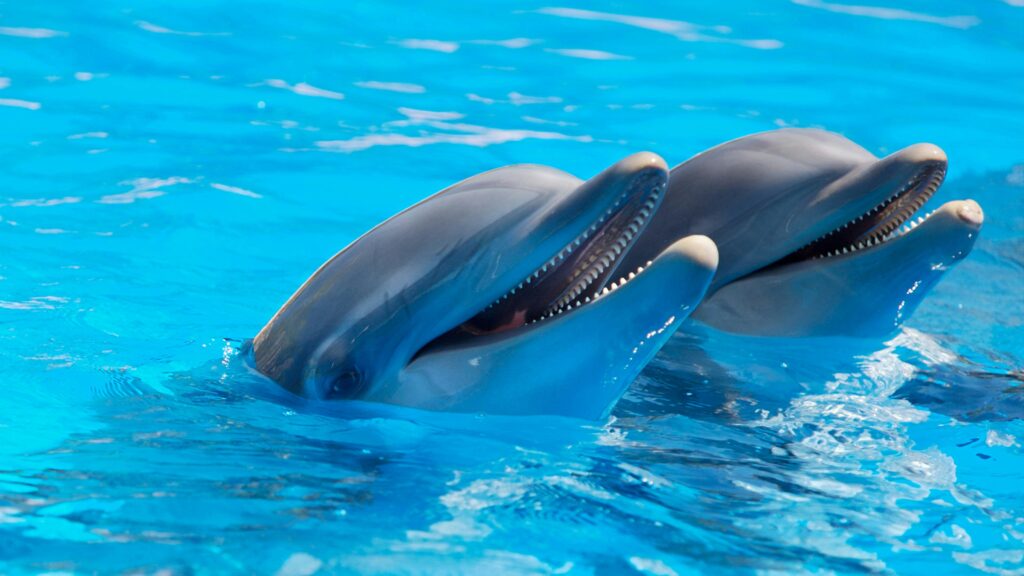A study carried out by researchers at the University of Haifa has used artificial intelligence to prove that loud noises from ships affect dolphin communications.
Although it is already known that maritime traffic has an impact on the environment, it was unclear if dolphins were also affected by ship noises, as it was hard to determine.
The study at the Charney School of Marine Sciences combined acoustic studies of dolphin whistles, which is how the mammals communicate, with AI software that searches for patterns within the sounds.
It was carried out at the dolphin reef in the southernmost Israeli city of Eilat, on the Red Sea, and recorded and studied around 60,000 whistles when a ship was near and the same amount when one was not.
The study concluded that dolphins do change the way they communicate when there is nearby ship noise, although they are still uncertain of the meaning of the patterns the AI identified.
“Although it seems obvious, until now there was no empirical evidence that dolphins are affected by ship noise,” said the two authors of the study, Prof. Roee Diamant and Dr. Aviad Scheinin.
“Using AI, we were able to show that dolphins communicate in a unique way when ship noise is nearby. The influence of ship noise on communication between dolphins can cause them to move away from noise sources, which in some cases are their feeding grounds,” the two said.
“We still don’t know what unique pattern the AI system has recognized, but we know that it is related to the type of communication they make, and previous studies have already shown that changes in vocal behavior can be the result of stress and distress. In other words, dolphins communicate in a different way and change their vocal behavior when they encounter ship noise. In our upcoming studies, we will try to understand the nature of the effects.”
The study was published in the Nature Group journal Scientific Reports.
Related posts

Israeli AI Safety Tool Among TIME’S Best Inventions For 2024

TAU Team Discovers Mechanism To Eliminate Cancerous Tumors

Ashdod Port Investing In Startups As Part Of Innovation Strategy




Facebook comments